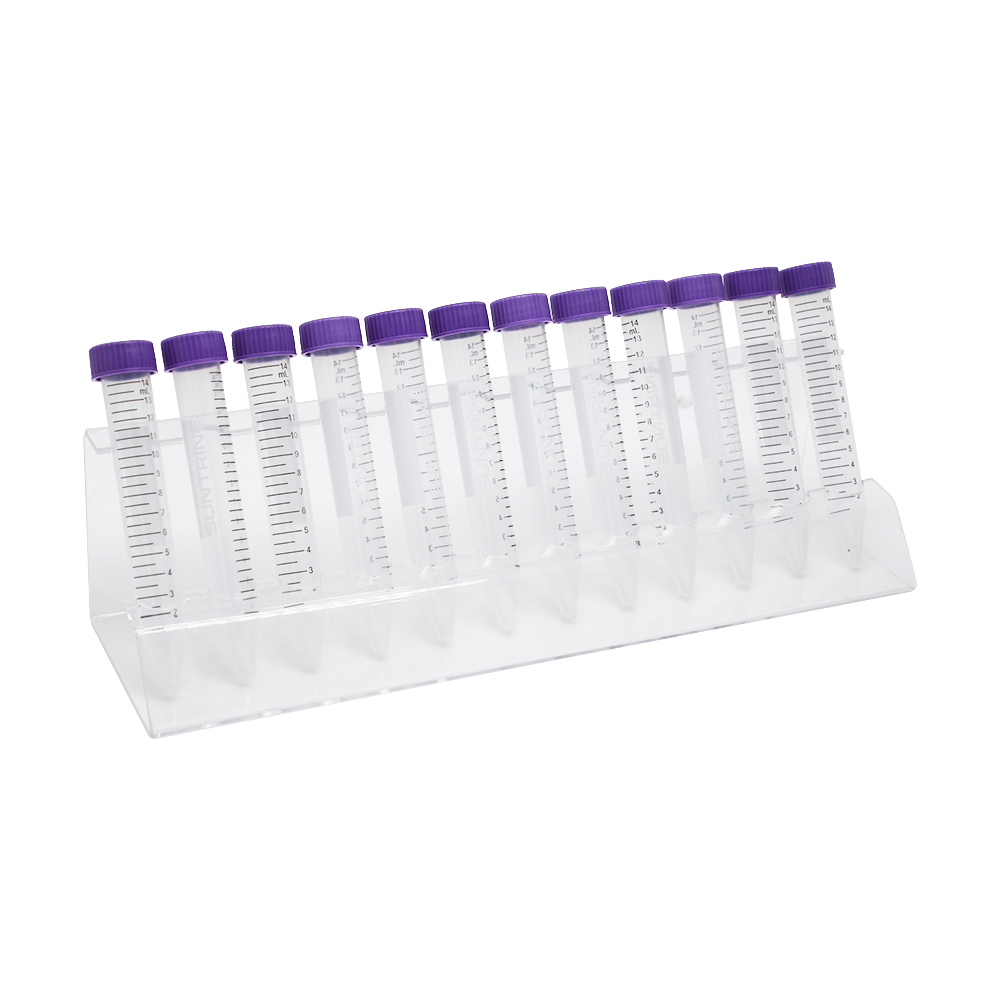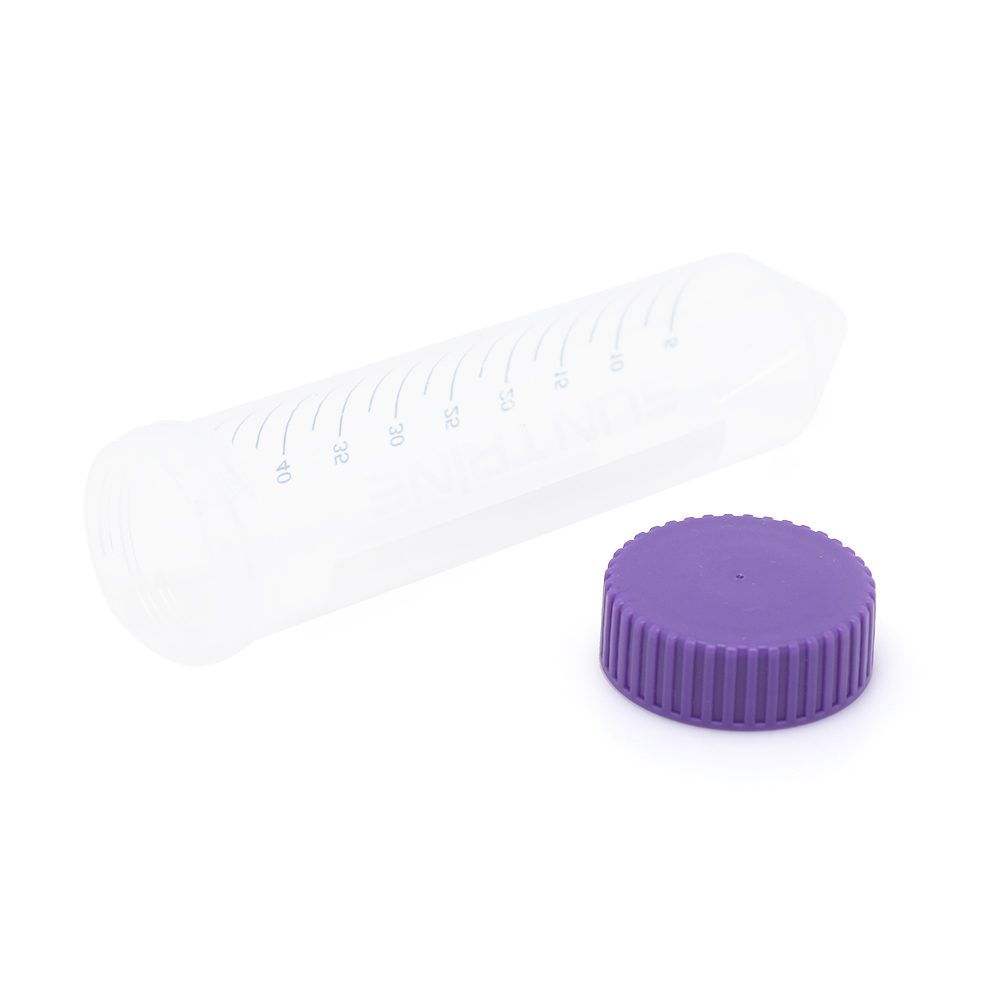Introduction
In laboratory settings, 15ml conical bottom centrifuge tubes play a pivotal role in various scientific procedures, from sample preparation to isolation and analysis. However, the choice of plastic material for these tubes significantly impacts their performance and reliability in specific applications. This comprehensive guide aims to delve into the critical factors involved in selecting the most suitable plastic material for 15ml conical bottom centrifuge tubes based on intended applications.

Understanding Different Plastic Types
Plastic types commonly used in manufacturing 15ml conical bottom centrifuge tubes vary in their properties and characteristics. Polypropylene (PP), polycarbonate (PC), polyethylene (PE), and other specialized plastics are frequently utilized. Each possesses distinct attributes such as chemical resistance, transparency, temperature tolerance, and durability, influencing their suitability for different laboratory tasks.
Factors Influencing Material Selection
Several crucial factors dictate the choice of plastic material for 15ml conical bottom centrifuge tubes:
- Types of Samples
a. Biological Samples: These encompass various biomolecules such as DNA, RNA, proteins, and cells. Certain plastic materials might interact with biomolecules, leading to adsorption, leaching, or alteration of the sample. For instance, polypropylene (PP) is commonly preferred due to its low binding properties, minimizing sample loss during centrifugation. In contrast, polycarbonate (PC) might be unsuitable for biomolecules due to potential adsorption concerns.
b. Chemical Samples: Chemical reagents, acids, solvents, and other substances might have distinct compatibility requirements. Evaluating the chemical resistance of plastic materials is crucial to prevent degradation, leaching, or reaction with the sample. Polyethylene (PE) might offer adequate resistance to some chemicals but could be unsuitable for aggressive solvents or corrosive substances.
- Centrifugation Conditions
a. Speed and Duration: Centrifugation conditions vary based on the nature of the experiment or process. High speeds or prolonged durations can exert mechanical stress on the tubes. Polypropylene, known for its mechanical strength, might be better suited for higher centrifugation speeds compared to other plastics like polyethylene, which may deform under such conditions.
b. Temperature Tolerance: Certain applications involve extreme temperatures, such as cryogenic or high-temperature centrifugation. Polycarbonate might withstand a broader range of temperatures compared to polypropylene or polyethylene, making it suitable for extreme conditions.
- Specific Applications
a. Research Settings: Research laboratories often require versatility in 15ml conical bottom centrifuge tubes for various experiments. Polypropylene tubes are a popular choice due to their chemical resistance, clarity, and suitability for a wide range of samples.
b. Clinical Diagnostics: Clinical laboratories might prioritize transparency and sterilization capability. Polycarbonate tubes might be preferred due to their high clarity, facilitating visual inspection, and autoclaving for sterilization.
c. Industrial Processes: Industrial applications might demand specialized materials tailored to withstand harsh chemicals or unique processing conditions. Customized plastics with enhanced chemical resistance or durability might be required.
Comparison of Plastic Materials for 15ml conical bottom centrifuge tubes
- Polypropylene (PP)
Polypropylene is a highly versatile plastic widely employed in laboratory settings for 15ml conical bottom centrifuge tubes. Its popularity stems from several advantageous properties:
Chemical Resistance: PP exhibits excellent resistance to a wide array of chemicals, making it suitable for various biological and chemical samples. Its inert nature ensures minimal interference with sample integrity, crucial for applications involving sensitive biomolecules like DNA, RNA, or proteins.
Transparency and Clarity: PP offers good optical clarity, allowing visual inspection of the sample inside the tube. This transparency aids in monitoring sample volume, color changes, or precipitates formed during centrifugation.
Mechanical Strength: It possesses robust mechanical properties, withstanding moderate to high centrifugation speeds without deformation or breakage. This durability ensures the integrity of the sample during intense centrifugal forces.
Cost-effectiveness: PP tubes are relatively cost-effective compared to some other materials, providing a balance between performance and affordability.
However, while PP offers many advantages, it might have limitations in extreme conditions, such as high-temperature applications or exposure to certain aggressive solvents, where it could show signs of degradation or unsuitability.
- Polycarbonate (PC)
Polycarbonate is renowned for its exceptional clarity and durability, making it a preferred choice for specific laboratory applications:
High Clarity: PC tubes offer superior transparency compared to PP, enabling excellent visibility for sample observation and inspection. This property is advantageous for assays requiring precise visual analysis.
Durability: PC exhibits remarkable mechanical strength and resistance to impact, making it suitable for repeated use without the risk of breakage or damage. This durability extends its lifespan in laboratory settings.
Temperature Tolerance: Polycarbonate tubes can withstand a broader temperature range compared to PP, making them suitable for applications involving extreme temperatures, including cryogenic conditions.
However, PC tubes might be susceptible to certain chemicals, potentially limiting their compatibility with specific samples or solvents. They can also be more expensive compared to PP tubes, impacting their cost-effectiveness for some applications.
- Polyethylene (PE)
Polyethylene is known for its flexibility and impact resistance but may have limitations in laboratory settings
Flexibility: PE tubes offer flexibility, allowing easy manipulation and handling. However, this flexibility might result in deformation under high centrifugation speeds, making them unsuitable for certain applications requiring rigid tubes.
Chemical Resistance: While PE exhibits decent chemical resistance, it might not match the level of resistance offered by PP or PC. Consequently, it may not be suitable for samples or reagents that require stringent chemical compatibility.
Cost-effectiveness: PE tubes might be cost-effective for less demanding applications due to their lower production costs compared to PP or PC.
Guidelines for Selecting Appropriate Material
Sample Type Compatibility: Assess the chemical nature of the samples and select a plastic material that ensures minimal interaction or contamination.
Centrifugation Conditions: Consider the required centrifugation speeds and temperatures, choosing a material capable of withstanding these conditions without deformation or failure.
Application-Specific Requirements: Tailor the material choice to suit the specific demands of the intended application, considering factors like transparency, chemical resistance, and sterilization needs.
Conclusion
Selecting the appropriate plastic material for 15ml conical bottom centrifuge tubes involves a careful assessment of various factors, including sample types, centrifugation conditions, and specific application needs. By understanding the properties and limitations of different plastics like polypropylene, polycarbonate, and polyethylene, researchers can make informed decisions, optimizing experimental outcomes and ensuring reliable and reproducible results in laboratory settings.
Related Products





